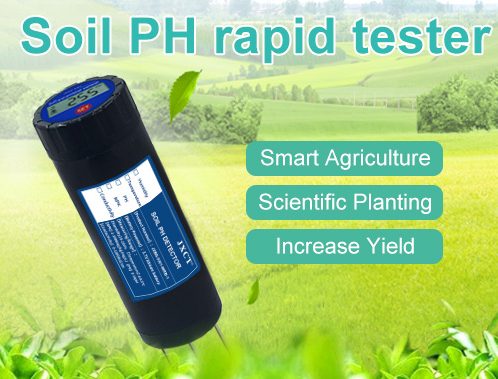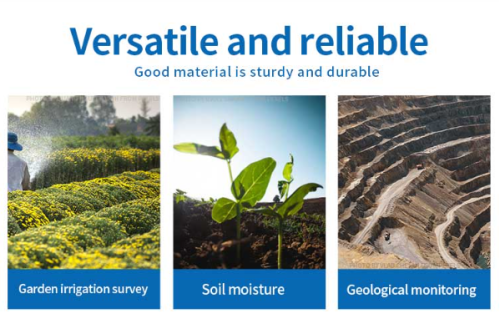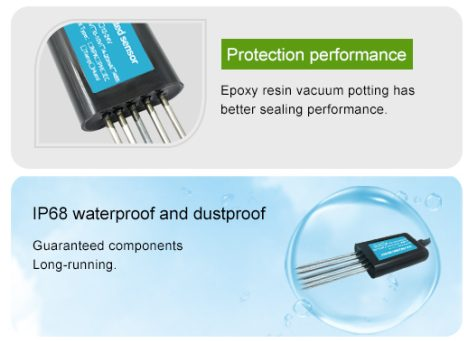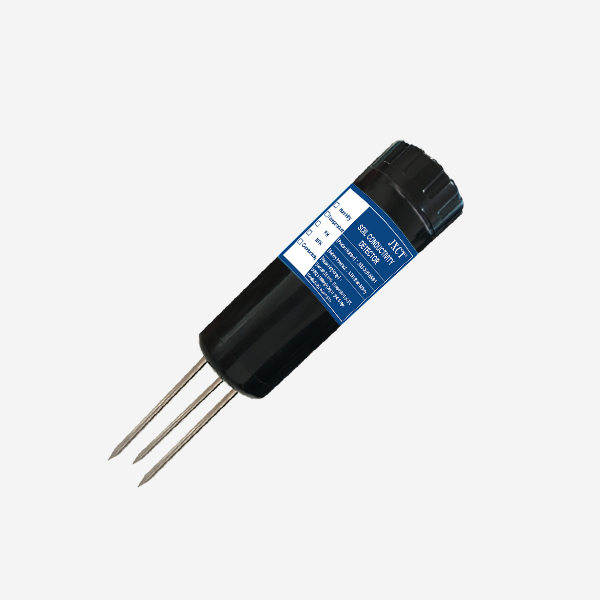Soil pH is a critical factor in determining soil health and crop productivity. Soil pH sensor are essential tools for monitoring and managing soil acidity, enabling farmers to optimize soil fertility, enhance crop yields, and promote sustainable agricultural practices. This article discusses the significance of soil pH sensors, their applications in agriculture, technological advancements, and the impact of these innovations on soil management.
Importance of Soil pH Sensors

Soil pH sensor play a crucial role in providing real-time data on soil acidity levels, which is essential for making informed decisions regarding soil management practices, such as liming, fertilization, and crop selection. By accurately measuring soil pH, these sensors enable farmers to optimize soil fertility, improve crop yields, and minimize environmental impact.
Applications of Soil pH Sensors
Soil Health Monitoring: We use soil pH sensors to monitor soil health and assess soil acidity. This monitoring is essential for understanding soil fertility, nutrient availability, and the overall health of agricultural land.
Precision Liming: Soil pH sensors are instrumental in precision liming, enabling farmers to optimize lime application based on real-time pH data. By applying lime only where needed, farmers can reduce the cost of liming and minimize the environmental impact of lime application.

Crop Selection: Soil pH sensors aid in crop selection, as different crops have specific pH requirements. By monitoring soil pH, farmers can select crops that are best suited to the soil conditions, leading to improved crop yields.
Environmental Conservation: Soil pH sensors help in minimizing the environmental impact of soil management practices, such as liming and fertilization, by enabling farmers to optimize these practices based on real-time pH data.
Technological Advancements in Soil pH Sensors
The evolution of soil pH sensors has been marked by significant technological advancements, leading to the development of highly accurate, reliable, and user-friendly monitoring solutions.
Wireless Connectivity: We integrate modern soil pH sensors into wireless networks to achieve real-time data transmission and remote monitoring of soil acidity levels in farmland.

Sensor Fusion Technology: Advanced soil pH sensors incorporate sensor fusion technology, which combines multiple sensors to measure not only pH but also other important parameters such as temperature, moisture, and nutrient levels, providing a comprehensive understanding of soil health.
Data Integration and Analytics: The integration of soil pH sensor data with advanced analytics and modeling tools facilitates the interpretation of complex datasets, enabling the prediction of soil trends and the optimization of soil management strategies.
Impact on Environmental and Agricultural Practices
The widespread adoption of soil pH sensors has had a profound impact on environmental sustainability and agricultural practices.

Efficient Soil Management: Soil pH sensors enable precise monitoring of soil acidity levels, leading to optimized soil management practices, reduced soil degradation, and improved soil fertility, contributing to environmental protection and resource conservation.
Enhanced Crop Yields: By providing real-time data on soil acidity levels, sensors support the optimization of soil management practices, leading to improved crop yields and resource efficiency.
Reduced Environmental Impact: Soil pH sensors help in minimizing the environmental impact of soil management practices, such as liming and fertilization, by enabling farmers to optimize these practices based on real-time pH data, thereby contributing to environmental conservation.
Sustainable Soil Management: Soil pH sensors promote sustainable soil management practices by ensuring the efficient use of soil amendments, reducing the risk of soil imbalances, and preserving soil fertility.
Future Developments and Challenges
Looking ahead, the continued advancement of soil pH sensor technology presents opportunities and challenges.
Integration with Precision Farming Systems: Soil pH sensors are expected to be integrated into precision farming systems, enabling real-time decision support for precise soil management and sustainable agriculture.
Sensor Calibration and Accuracy: Addressing the challenges associated with sensor calibration, accuracy, and long-term stability will be crucial to ensuring the reliability and effectiveness of soil pH sensor data.
Soil pH Monitoring in Controlled Environments: Soil pH sensors will play a vital role in monitoring soil acidity levels in controlled environments such as greenhouses and vertical farms, supporting the efficient use of soil amendments in intensive crop production systems.
Conclusion
In conclusion, soil pH sensors are indispensable tools for monitoring and managing soil acidity, supporting environmental sustainability, efficient soil use, and agricultural productivity. As technology continues to advance, the integration of innovative sensor technologies and data analytics will further enhance the capabilities of soil pH sensors, contributing to the sustainable management of soil resources and the resilience of agricultural systems.
